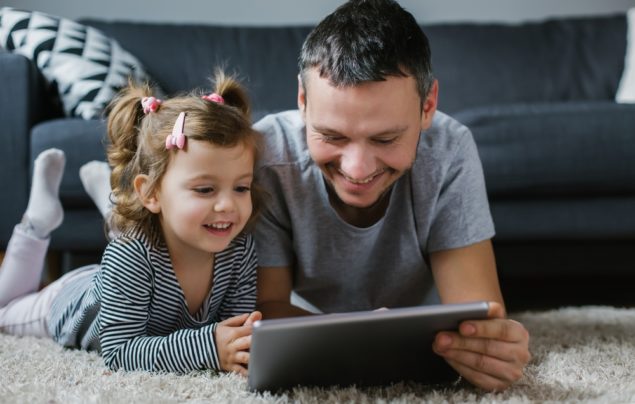
Educational apps can be helpful in supporting early learning in young children, according to a new study led by researchers at Florida International University’s Center for Children and Families.
The researchers reviewed 35 studies from all over the world that included nearly 5,000 children under the age of 6 playing with interactive apps, and measured their academic, cognitive, or social-emotional skill outcomes.
The review found the strongest evidence for a learning benefit for apps targeting early math skills, followed by early language and literacy skills, which includes letter knowledge, phonological awareness, letter writing and vocabulary.
“This is the first study to review research findings examining young children’s learning from interactive educational apps,” said Shayl Griffith, lead author and postdoctoral fellow at the Center for Children and Families. “These findings are important because they suggest that interactive apps may be a useful and accessible tool to support early academic development.”
The review did not find evidence of any benefit of apps aiming to improve social communication skills in children with Autism Spectrum Disorder (ASD), an important finding given that touchscreen technology is popular in ASD treatment.
Results also suggest touchscreen app games have the potential to support learning in other skill areas, including science knowledge and executive functioning. However, the authors point out that there were only a small number of studies targeting these skill areas, and further research is needed to establish whether use of interactive apps can effectively promote these skills.
Researchers state that more research on educational apps is needed, with focus on clarifying what app features and content may best support learning.
“The integration of learning apps into children’s lives at home and school has outpaced the research needed to provide comprehensive recommendations for their use,” said co-author Daniel Bagner, FIU professor of psychology and director of the Early Childhood Behavior Lab at the Center for Children and Families. “Understanding how interactive app features support learning in different content areas will allow clearer standards for educational app makers.”
Research shows that children learn best when co-viewing TV with parents and parent behaviors while co-using apps have been linked to positive engagement and affect in children. Researchers recommend parents be involved as much as possible while their child engages in screen time and to replace typical screen time, like watching cartoons, with interactive educational apps that may help promote early skills in their child.
“Screen time recommendations often focus only on preventing overuse of screens rather than opportunities for maximizing learning,” Griffith said. “Parents and providers working with young children should pay attention not only to how much screen time children are getting, but what kinds of activities they are engaging in to maximize potential benefits.”
Bagner added, “Continued research in this area will be critical to inform the debate around young children’s screen time, as clinicians and researchers try to strike a balance between taking advantage of the potential benefits of new technology while encouraging limits on screen time.”
The study was published in Pediatrics.





